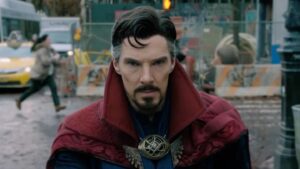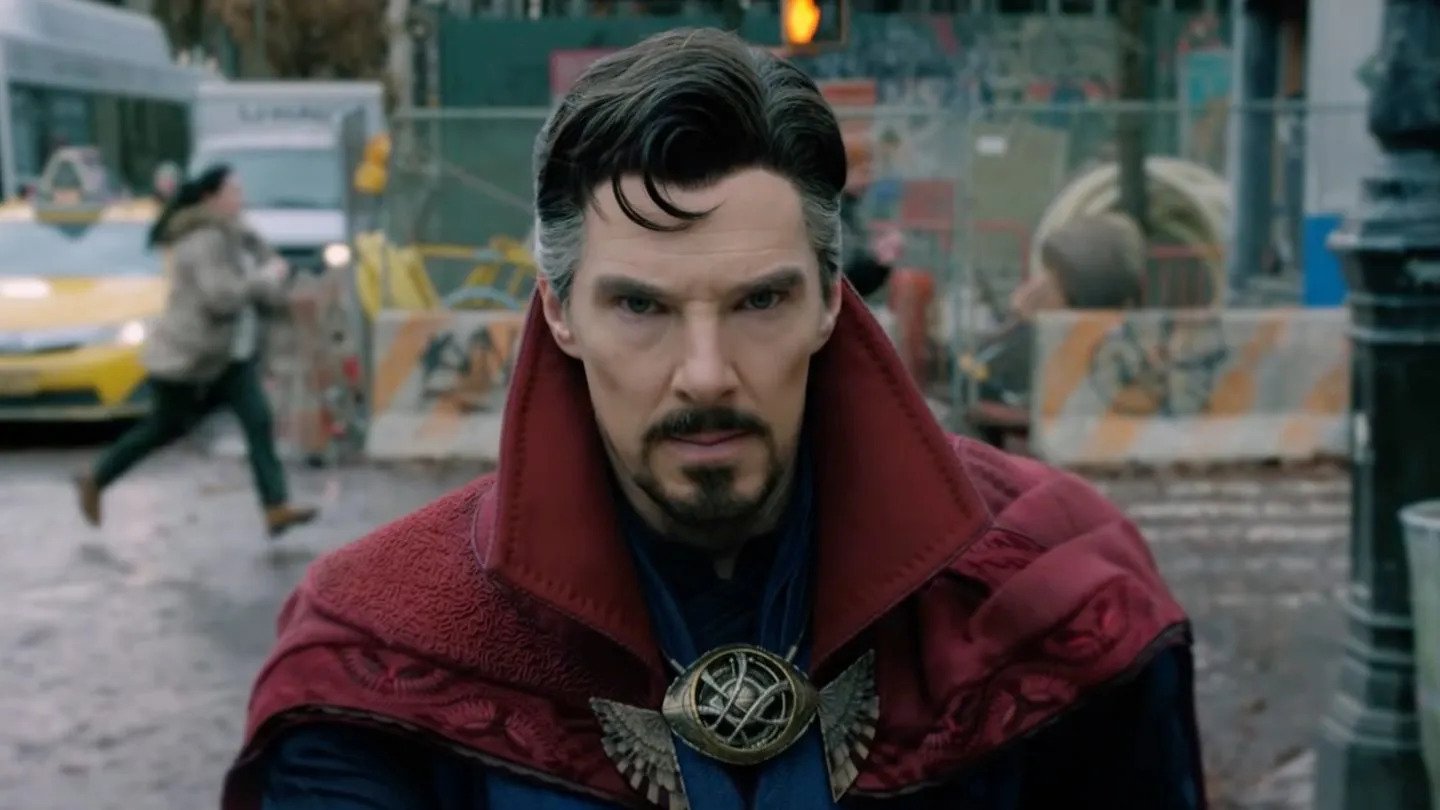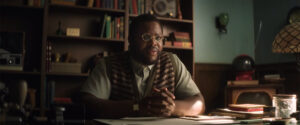Doctor Strange in the Multiverse of Madness
Posted on May 3, 2022 at 11:27 am
B| Lowest Recommended Age: | Middle School |
| MPAA Rating: | Rated PG-13 for frightening images, action, intense sequences of violence, and some language |
| Profanity: | Some strong language, s-word |
| Alcohol/ Drugs: | Drugged drinks |
| Violence/ Scariness: | Extended comic-book/fantasy peril and violence, scary monsters, zombie, disturbing and grisly images |
| Diversity Issues: | None |
| Date Released to Theaters: | May 6, 2022 |
| Date Released to DVD: | July 25, 2022 |

It begins in medias res, a battle with a very big monster who seems to be made of electrified spaghetti. There is a teenage girl and a choice, something that would destroy her but save the world, at least until the next monster. Doctor Strange, the famously hyper-rational, often arrogant surgeon-turned sorcerer with the greying temples and magical cloak, has to decide. What will he do? What should he do?
He makes a choice and then he wakes up. It was a dream. Or maybe it was not. He will learn that it was a peak into the multiverse, the parallel versions of our world we got a glimpse of in “Spider-Man: No Way Home,” when two other Spider-Mans (Spider-Men?) and a handful of their villains joined together in our world. There is a way to physically enter the other verses and there is a way to “dream-walk,” to inhabit another verse’s version of you and substitute your thoughts and emotions. And that teenager, America Chavez (a terrifically natural Xochitl Gomez of “The Babysitter’s Club”) shows up with the key to some of that verse-hopping.
Strange seeks out Wanda to ask for her help. They walk through her peaceful grove of apple blossoms and he tells her they smell “real.” She assures him they are, that she is done with world-building. The meaning of “real” is a theme of the film as the different versions of the characters in the multi-verses present different ideas of reality, including free food and a verse where everyone is paint, plus some surprising switches in roles, personalities, hair color and style (Strange with a ponytail?), and destinies. And there are monsters, including a very cool one that looks like a gigantic corrugated octopus with a head that’s one enormous eyeball, like a spider-y band member from The Residents.
That’s as spoiler-y as I want to get. So I will stick to some general comments. Cumberbatch makes Strange vivid, layered, even a little bit vulnerable, and the interactions with the woman he loves, Christine Palmer (Rachel McAdams) and America have a nice symmetry that helps us see Strange work through his options, both for fighting the villain and for moving forward in his own life. The visual design is wonderfully imaginative, each verse filled with enthralling details. The action scenes are well staged, Raimi brings a tingly horror twinge to the mood, and Danny Elfman’s music is everything you want a superhero soundtrack to be. It feels good to be back in the IMAX MCU.
What keeps it under the level of the best of these films, though, is what has been an increasing issue in superhero movies. The powers are not clearly defined, so the stakes are not clearly defined. It is not enough to say it’s about the fate of the world or even the fate of America (the person, though of course the country, too). It feels like too many times that we’ve been told that someone has ultimate power, and then someone comes along with more ultimate power. (I did think it was very funny when we saw the Infinity Stones carelessly tossed into a low-level bureaucrat’s desk drawer in the “Loki” series.) I’m not saying every superhero has to be Superman, with his abilities and vulnerability clearly defined. But this film’s search for two artifacts as the keys to resolving the conflict are a distraction from the level of mythic existential conflict this movie tries for. It is a particularly weak moment when Strange, whose power comes from intensive training, resorts to the old “just figure out how to use your power in the next nano-second.” The special effects are state-of-the-art but there’s only so much they can do with characters who just shoot electricity at each other.
NOTE: Stay all the way to the end of the credits for two extra scenes.
Parents should know that this is at the upper edge of a PG-13 with some strong language (s-words) and extensive comic book/fantasy peril and violence with some disturbing and graphic images, including a disintegrating zombie. Characters are drugged.
Family discussion: Is it ever right to sacrifice one person to save many? (Look up “The Trolly Problem.”) What does it mean to always want to be the one holding the knife?
If you like this, try: “Spider-Man: No Way Home,” “Everything Everywhere All at Once,” and “Another Earth”



